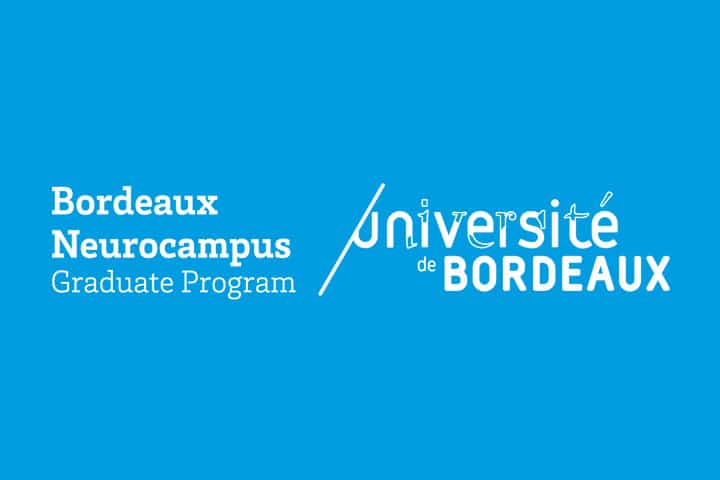
Well-being seminars by the Bordeaux Neurocampus Graduate Program
Even if we love it, academic life can be challenging at times, and COVID-19 has exacerbated this experience for many of us. For this reason, the Bordeaux Neurocampus Graduate Program is organizing a series of Well-being seminars specifically designed to address the graduate students’ concerns and provide them with preventive strategies on mental health.
Students can register on https://forms.gle/QvXQUwxABgv4g9Fg8
They can get a certificate of attendance to validate as training hours at the ED-SVS or you can just login and assist anonymously. The webinars are lead by Desiree Dickerson, Neuroscientist. Psychologist. Speaker. Coach.
#1 Strategies for maintaining our mental health and well-being during our PhD.
Thursday 10th June – 2PM
Meeting ID: 820 4550 4471
Link: https://us02web.zoom.us/j/82045504471
Abstract:
We explore the many ways that academics are trying to navigate their roles and their well-being during the various phases of this pandemic.
We highlight the need to:
– set a solid foundation,
– how to manage our own expectations and the expectations of those around us,
– identify our red flags (our first signs of stress),
– learn how to de-escalate our thoughts, sensations, and emotions when we feel overwhelmed or stressed, and
– how to press reset when your day isn’t going to plan.
#2 Perfectionism & Imposter Syndrome
Tuesday 13th July@ 12AM
Meeting ID: 820 2938 5812
Link: https://us02web.zoom.us/j/82029385812
Abstract:
We argue that our perfectionism drives us to great heights, to excel, and to maintain our edge. We rarely stop to see the costs it carries. Imposter syndrome distorts the way we see ourselves, our performance, and our capabilities. Both reflect our doubts and fears – fear of being judged, fear of failing, fear of not being good enough, fear of not belonging. They’re the product of distorted thinking patterns. Thinking patterns that we can change.
We explore:
– The true costs of these doubts and fears, and the extent to which they are impacting on your productivity, mental clarity, and your joy for what you do.
– Simple ways to notice when your perfectionism or imposter syndrome is tripping you up.
– Simple ways to reshape your inner critic to be more objective and more compassionate, so that you are able to thrive thanks to the voice in your head rather than in spite of it.
#3 Motivation & Procrastination
Thursday 16th September @2PM
Meeting ID: 856 5870 2148
Link: https://us02web.zoom.us/j/85658702148
Abstract:
Procrastination is a way of easing our own discomfort. Discomfort because the task is too hard, too boring, too big, too scary. The difficulty with procrastinating is that it makes you feel better for a moment, which makes it very reinforcing (and therefore more likely that you will do it again next time), but it does nothing to fix the reason the task feels uncomfortable to begin with. It is still too big, too hard, too scary, or too boring the next time you sit down to do it. So, the cycle repeats.
We discuss ways to:
– Identify these procrastination loops when they start to unfold,
– Identify some of the thoughts underlying the discomfort and reframe them,
– Employ alternative tasks that can alleviate the discomfort AND make the task less difficult, scary, hard or boring.
– Explore drivers of our motivation.
#4 Isolation & Belonging
Date to be defined (October)
About how to to:
– Give yourself permission (to be where you are and feel what you feel!)
– Navigate uncertainty and worry.
– Make micro-changes to maintain a solid emotional and mental foundation.
– Fill your bucket when life is constantly emptying it.
Mise à jour: 14/06/21
